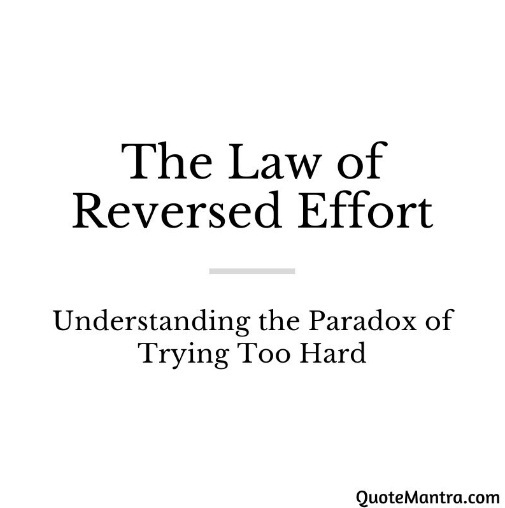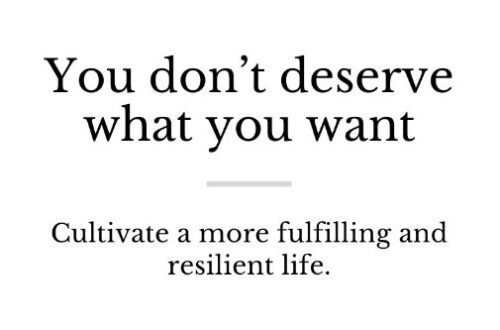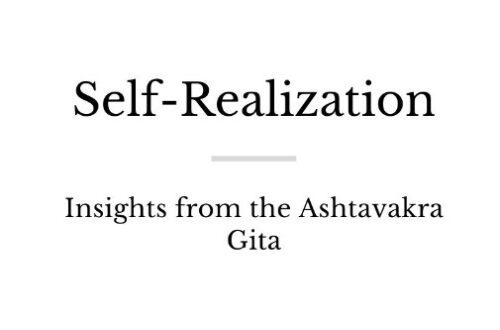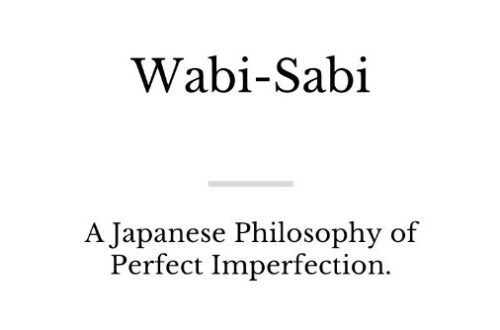
The Law of Reversed Effort
In the pursuit of success, we often find ourselves caught in a paradoxical situation where the harder we try, the worse our outcomes become. This phenomenon, known as the Law of Reversed Effort, challenges the conventional wisdom that relentless striving is the key to achievement. Instead, it suggests that excessive effort can create obstacles, hinder progress, and sabotage our desired goals. Originating from the realm of psychology and popularized by figures such as Sigmund Freud, the Law of Reversed Effort invites us to explore the delicate balance between effort and ease, and to discover the power of relaxation and detachment in unlocking our true potential. In this article, we will delve deeper into this intriguing concept, unravel its underlying principles, and explore its implications in various aspects of life. By understanding the Law of Reversed Effort, we can navigate the complexities of striving for success with a more balanced and effective approach.
The Law of Reversed Effort: Understanding the Paradox of Trying Too Hard
Introduction: In the realm of human endeavor, we often hear the phrase, “The harder you try, the worse it gets.” This enigmatic concept, known as the Law of Reversed Effort, suggests that the more effort one exerts to achieve a desired outcome, the more difficult it becomes to attain success. While it may seem counterintuitive at first, this idea has intrigued philosophers, psychologists, and individuals seeking personal growth for decades. In this article, we will delve into the depths of the Law of Reversed Effort, exploring its origins, its implications, and its practical applications in various aspects of life.
Understanding the Law of Reversed Effort: The Law of Reversed Effort proposes that excessive striving and tension can impede progress and hinder the attainment of desired goals. When individuals become too fixated on an outcome, the associated anxiety and pressure can create mental blocks that sabotage their efforts. Paradoxically, by relinquishing excessive effort and adopting a more relaxed and detached approach, individuals may find it easier to achieve their objectives.
Origins of the Law of Reversed Effort: The concept of the Law of Reversed Effort finds its roots in the work of Sigmund Freud, the renowned psychoanalyst. Freud introduced the idea of “paradoxical intention” as a therapeutic technique. Paradoxical intention involves encouraging patients to intentionally do the opposite of what they fear or struggle with, aiming to reduce anxiety and break the cycle of negative thinking. By reversing their efforts and letting go of excessive control, individuals often experience a shift in perspective, leading to improved outcomes.
Applying the Law of Reversed Effort:
- Performance and Creativity: In fields that require peak performance, such as sports, performing arts, or problem-solving, the Law of Reversed Effort can be applied to enhance results. Athletes who overthink their movements or artists who become too self-conscious often experience diminished performance. By learning to trust their skills and enter a state of “flow,” where effort and action become effortless, individuals can tap into their full potential.
- Interpersonal Relationships: Applying the Law of Reversed Effort can transform the dynamics of interpersonal relationships. When one tries too hard to please others, gain acceptance, or force intimacy, it can create tension and push people away. By cultivating a genuine sense of self-acceptance, authenticity, and detachment from specific outcomes, individuals can build healthier connections based on mutual respect and understanding.
- Problem-Solving and Decision-Making: The Law of Reversed Effort can also be valuable in problem-solving and decision-making processes. Excessive effort and an overly rigid mindset can limit creative thinking and impede the exploration of alternative solutions. By adopting a more open and relaxed approach, individuals can tap into their subconscious mind and unleash innovative ideas.
- Personal Growth and Well-being: In the pursuit of personal growth and well-being, the Law of Reversed Effort emphasizes the importance of self-compassion and acceptance. Often, the more one struggles to achieve happiness, peace, or self-improvement, the more elusive those states become. By embracing the present moment, practicing self-care, and letting go of excessive striving, individuals can cultivate a more harmonious and fulfilling life.
Conclusion: The Law of Reversed Effort challenges the notion that success is solely achieved through relentless effort. While hard work and dedication are undoubtedly essential, excessive striving and tension can hinder progress. By recognizing the value of relaxation, detachment, and a balanced approach, individuals can unlock their true potential and create a more harmonious and effective path to success. As the saying goes, “Sometimes, the most productive thing you can do is relax.”
Also read: The Less You Seek, The More You’ll Find




